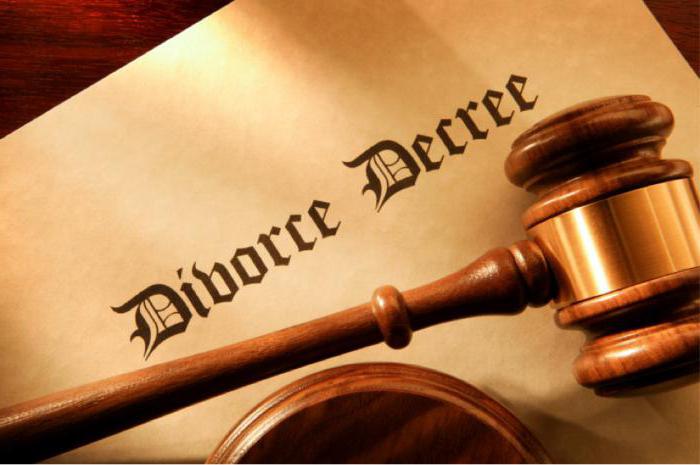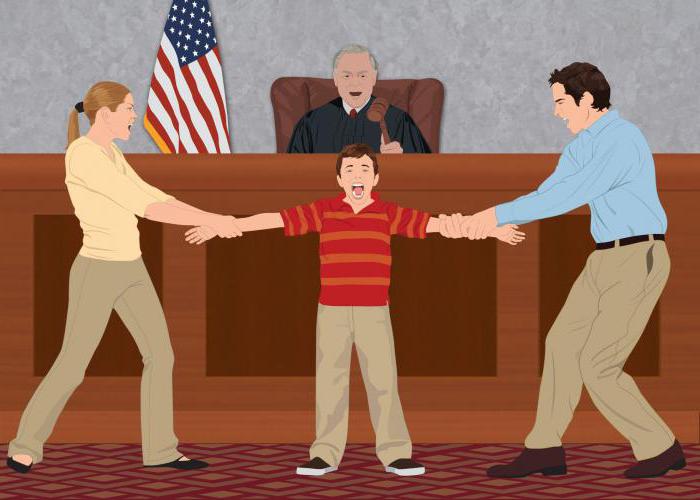For marriages, the future seems perfect, and the couple want to live with each other for the rest of their lives. However, it does not always work out, as in a fairy tale. In fact, the number of situations where one of the parents leaves the family and the other remains with the child has increased.
The legislation of the Russian Federation in most cases takes the side of the spouse, who remains to raise the baby. And this is logical, because it is more difficult for him to cope with the child alone, since as he grows up, new needs arise that need to be met. Then the second spouse is assigned the payment of mandatory payments. Exemption from child support is quite rare, but it does occur.
Who can claim payments?
The Family Code of the Russian Federation regulates the relationship of spouses in marriage. He suggests that people within the family should support each other, including financially. One of the articles of the code requires mutual financial assistance.

However, in life a situation may arise in which one of the spouses will not be able to provide for themselves in the future. According to the law, in this case, the second spouse must pay child support. They can count on help:
- disabled spouse;
- pregnant wife;
- spouse raising a child before the age of three;
- spouse engaged in a child with a disability - until adulthood;
- spouse raising a child with the first group of disabilities on an ongoing basis.
The specific amount of alimony is not spelled out in the legislation. It depends on the financial situation, the number of children and other circumstances that somehow influence the process.
Reasons for exemption from alimony
The Family Code clearly defines the grounds on which the payer gains financial independence and ceases to be a debtor. An exemption from payment of alimony debt may occur in the following cases:
- debtor's death;
- attaining adulthood, and with it the full legal capacity of the child;
- the payer is declared legally incompetent;
- by agreement on payment of payments.

The last paragraph contains a lot of circumstances in which the payment of alimony ceases. For example, a payer can redeem the remaining share of payments by registering a property or land for a child. This option is possible if it is prescribed in the alimony payment agreement.
Claim for exemption from alimony
Of course, any litigation begins with an application. Exemption from payments is no exception. If the debtor believes that, for one reason or another, the making of mandatory payments should be suspended or terminated, the first step is to file a lawsuit.
The application for exemption from alimony includes the address and name of the court where the claim will be filed. Of course, you must provide personal information about yourself and contact details, you should add information about the defendant.

In the text of the statement, it is necessary to describe all the circumstances of the case, provide evidence, the arguments must be supported by facts. Referring to specific documents, in the end you should write your requirements and explain why the payment of alimony should be stopped. If everything is done correctly, the court will quickly consider the lawsuit and schedule a meeting.
What documents need to support the statement?
The statement of claim for exemption from alimony is the first action of the dissenting payer.In addition to the statement itself, there is a list of documents that must be attached. Among them stand out:
- State duty, or rather, a receipt on its payment. Today the cost is 300 rubles.
- A document according to which the plaintiff is the payer of alimony. There may be two options: a court decision on the recovery of payments and a court order. They are equivalent to each other, any of them can be attached to the statement.
- Performance list. This document is held by bailiffs who are responsible for specific cases. In order to get a copy of the sheet, you need to contact a special service. It is necessary to find the bailiff and make a request, after which the request will be fulfilled.
- Proof of. This base is best based on written official documents and references.

Of course, the grounds for such a statement are very difficult to find, but nothing is impossible. You can send a request for the reclamation of specific documents. If the request is satisfied, the payer may receive exemption from alimony. The court, in the presence of reasonable evidence, will take the side of the debtor.
Who can exempt from child support?
In this matter it is necessary to understand that only with the help of a court decision can material independence be gained. In addition, only one option for such a development is possible. If the spouse, in favor of whom the payments are being made, refused them, then a court decision will not be needed.
In the event of the death of the payer, the obligation to pay alimony shall be transferred to the person who accepted the inheritance. He must support a deceased child until he attains full legal capacity.
Abandonment of the child
An exemption from child support may occur if one of the spouses legally abandons the child. Currently, situations are common when the baby's mother marries another man and wants him to adopt him. In this case, the birth certificate must include the newly made father.

If the true biological dad of the child agrees to such a development of events, he writes a corresponding statement about the waiver of rights to his child. Thus, he automatically gives permission for adoption by another man. If the whole procedure is successful, the father who renounced the rights to the child can safely file a claim for exemption from child support.
Deprivation of parental rights
This reason as such is not a reason for termination of payments, since the deprivation of rights does not entail the cancellation of obligations. Alimony must be paid in the same way as before.
However, at court sessions there are situations when the baby's parents agree among themselves. For example, the spouse who was deprived of parental rights does not want to pay child support and asks for their cancellation. In this case, it all depends on the person involved in raising the child. If the relationship is positive, then there is a chance for a settlement.

A spouse raising a child asks for something in return for the cessation of payments, for example, the possibility of changing paternity or the free removal of the baby outside the country. In most cases, when making demands on both sides, former spouses find a common language and peacefully diverge.
The biological father of the child is another man
The exemption from the payment of alimony will be carried out in the event that the fact that the payer is not the real father of the child is established. According to statistics, about 30% of children are born not from the man with whom the woman is married. In fact, this is a lot, and everyone should think about it.
If this situation occurs, you can stop paying alimony based on this fact. To implement the process, you must go to court.A statement should be made, referring to the fact that at the time of recognizing himself as the child’s dad, the payer did not know what he really was not. DNA testing should be required. After it turns out that the other father is the biological father of the child, the payer can return the child support already paid and stop paying.
Final documents
After the court hearing, in case of cancellation of maintenance obligations, the plaintiff must be provided with a writ of execution. This document must be transmitted to the bailiffs who controlled the timely payment.

When the decision is made, the bailiffs take away a sheet showing the reasons why the plaintiff should no longer pay child support. For some time, the document is processed, and a decision is made to terminate control by the bailiffs.
Exemption from alimony is a topic that worries many spouses who have left the family. As we found out, there may be plenty of reasons for this. If the payer is confident that he is right, it is necessary to prove everything in court. It is better to prepare your speech in advance and, in the process, rely on real written evidence. In this case, the judge will have no other choice but to make a decision in favor of the debtor.